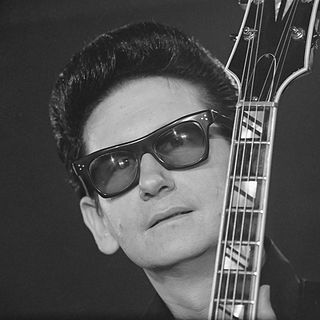
Roy Kelton Orbison was an American singer, songwriter, and guitarist known for his distinctive and powerful voice, complex song structures, and dark, emotional ballads. Orbison's music is mostly in the rock genre and his most successful periods were in the early 1960s and the late 1980s. His music was described by critics as operatic, earning him the nicknames "The Caruso of Rock" and "The Big O". Many of Orbison's songs conveyed vulnerability at a time when most male rock-and-roll performers projected machismo. He performed with minimal motion and in black clothes, matching his dyed black hair and dark sunglasses.

The Turtles are an American rock band formed in Los Angeles, California, in 1965 and best known for their 1967 hit song "Happy Together". They charted several other top 40 hits, including "It Ain't Me Babe" (1965), "You Baby" (1966), "She'd Rather Be With Me" (1967), "Elenore" (1968) and "You Showed Me" (1969).

Nuggets: Original Artyfacts from the First Psychedelic Era is a compilation album of American psychedelic and garage rock singles that were released during the mid-to-late 1960s. It was created by Lenny Kaye, who was a writer and clerk at the Village Oldies record shop in New York. He would later become the lead guitarist for the Patti Smith Group. Kaye produced Nuggets under the supervision of Elektra Records founder Jac Holzman. Kaye conceived the project as a series of roughly eight LP installments focusing on different US regions, but Elektra convinced him that one double album would be more commercially viable. It was released on LP by Elektra in 1972 with liner notes by Kaye that contained one of the first uses of the term "punk rock". It was reissued with a new cover design by Sire Records in 1976. In the 1980s, Rhino Records issued Nuggets in a series of fifteen installments, and in 1998 as a 4-cd box set.
Joe Melson is an American singer and a BMI Award-winning songwriter best known for his collaborations with Roy Orbison, including "Only the Lonely" and "Crying", which are both in the Grammy Hall of Fame and have both been included in Rolling Stone's 500 Greatest Songs of All Time. Melson was inducted into the Nashville Songwriters Hall of Fame in 2018.
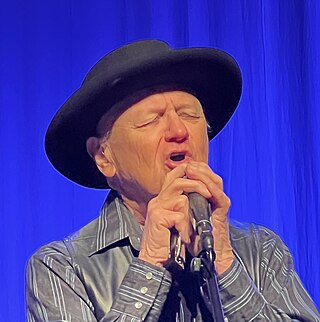
Charlie McCoy, is an American harmonica virtuoso and multi-instrumentalist in country music. He is best known for his harmonica solos on iconic recordings such as Candy Man, He Stopped Loving Her Today, I Was Country When Country Wasn't Cool, and others. He was a member of the progressive country rock bands Area Code 615 and Barefoot Jerry. After recording with Bob Dylan in New York, McCoy is credited for unknowingly influencing Dylan to decide to come to Nashville to record the critically acclaimed 1966 album "Blonde on Blonde".
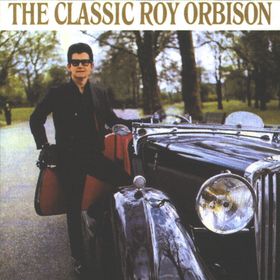
The Classic Roy Orbison is the ninth studio album recorded by Roy Orbison, and his third on the MGM Records label, released in July 1966. The single taken from it, "Twinkle Toes", would be Orbison's last US top-forty single during his lifetime, scraping in at #39. It also reached #24 in Australia and #29 in the UK.
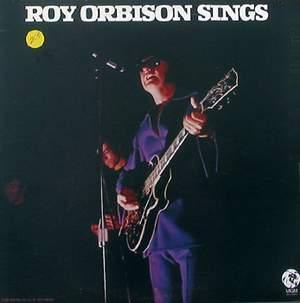
Roy Orbison Sings is the sixteenth album recorded by Roy Orbison and the ninth for MGM Records, released in May 1972. Around this time, Orbison's hit singles had well and truly dried up, but this album is said to be one of his finest.

There Is Only One Roy Orbison is the seventh album recorded by Roy Orbison, and his first for MGM Records, released in July 1965. It features his studio recording of "Claudette", an Orbison-penned song which had become a hit for The Everly Brothers in 1958. Ironically, at the time he recorded the song in 1965, he had divorced his wife Claudette, who had inspired the lyrics. Orbison later re-recorded the song for In Dreams: The Greatest Hits in 1985. The single taken from the album was "Ride Away", which reached no. 25 in the US charts, no. 12 in Australia and no. 34 in the UK. Cash Box described "Ride Away" as a "rhythmic teen-angled ode about a somewhat ego-oriented lad who cuts-out on romance."

Memphis is the seventeenth album recorded by Roy Orbison, and his tenth for MGM Records. The album was released in November 1972.

The Orbison Way is the 8th album recorded by Roy Orbison, and his second for MGM Records, released in January 1966. Two singles were taken from the album — "Crawling Back" and "Breakin' Up Is Breakin' My Heart", both of which were chart hits in England, the US and Australia. The album charted at #11 in the UK and #128 in the US.

Roy Orbison Sings Don Gibson is a tribute album recorded by Roy Orbison for MGM Records, and his tenth studio album overall. Released in January 1967, it is a collection of songs written by Country Music Hall of Fame singer/songwriter Don Gibson who, like Orbison, often wrote about the loneliness and sorrow that love can bring. Its one single, "Too Soon to Know", became a smash hit in the UK, reaching #3 there in September 1966, and also reached no. 4 in Ireland and no. 27 in Australia. In Canada, the song only reached no. 71.
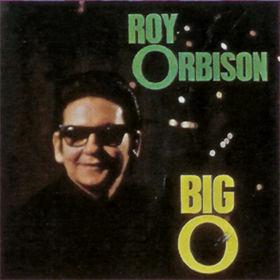
The Big O is the fifteenth music album recorded by Roy Orbison, and according to the authorised Roy Orbison biography, his second for London Records in the United Kingdom. The music and backing vocals were provided by English group, the Art Movement on all tracks except for "Penny Arcade", which was a studio recording and was released as a single in 1969, peaking at #27 in the UK and would be Orbison's last UK chart success during his lifetime. "Penny Arcade" was also his biggest hit in Australia, spending four weeks at Number One around Christmas, 1969. The second single, "Break My Mind", was Orbison's last Australian chart success during his lifetime, reaching #24 in March 1970. The album was released in Europe in early 1970.
Donald W. Gant was an American singer, songwriter and record producer.

Hank Williams The Roy Orbison Way is the fourteenth album recorded by Roy Orbison, and the eighth for MGM Records, released in August 1970. It is a tribute album to the songs of Country Music Hall of Fame honky tonk singer Hank Williams, whom Orbison listed among his influences. The album was recorded in just three sessions in early 1969, and none of its tracks were released as singles.
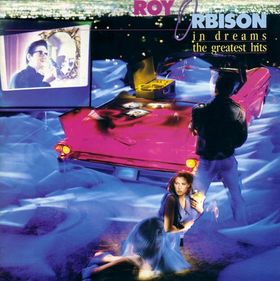
In Dreams: The Greatest Hits is a two-record album set by Roy Orbison songs released in 1987 on Virgin Records. It was produced by Orbison and Mike Utley, except for the song "In Dreams", produced by Orbison with T-Bone Burnett and film director David Lynch. All songs are re-recordings by Orbison from 1986, except "In Dreams" from April 1987.
Dan Folger was an American singer and songwriter.
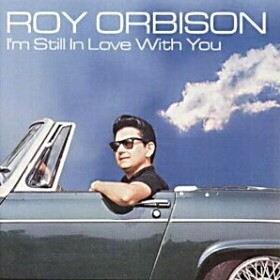
I'm Still in Love With You is the nineteenth album by Roy Orbison, recorded for Mercury Records and according to the authorised biography of Roy Orbison, it was released in September 1975.

"Oh, Pretty Woman", or simply "Pretty Woman", is a song recorded by Roy Orbison, written by Orbison and Bill Dees. It was released as a single in August 1964 on Monument Records and spent three weeks at number one on the Billboard Hot 100 from September 26, 1964, the second and final single by Orbison (after "Running Scared" to top the US charts. It was also Orbison's third single to top the UK Singles Chart.

"Pretty Paper" is a song written by country music singer-songwriter Willie Nelson in 1963. After being signed to Monument Records, Nelson played the song for producer Fred Foster. Foster pitched the song to Roy Orbison, who turned it into a hit. Nelson later recorded his own version of the song in November 1964.
"Run, Baby Run " is a song written by Joe Melson and Don Gant and performed by The Newbeats. It reached #4 in Canada, #12 on the Billboard Hot 100, and #66 in Australia in 1965. The song was also released in the United Kingdom as a single, but it did not chart on its original release. The group re-released the song as the B-side to their 1971 single, "Am I Not My Brother's Keeper", and in that year, "Run, Baby Run " reached #10 in the U.K., following extensive playing in Northern Soul clubs in England.
















